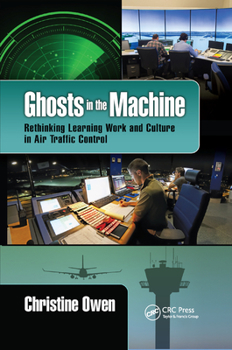Ghosts in the Machine: Rethinking Learning Work and Culture in Air Traffic Control
Select Format
Select Condition 
Book Overview
This book provides a socio-cultural analysis of the ways in which air traffic controllers formally and informally learn about their work and the active role that organisational cultures play in shaping interpretation and meaning. In particular, it describes the significant role that organizational cultures have played in shaping what is valued by controllers about their work and its role as a filter in enabling or constraining conscious inquiry. The premise of the book is that informal learning is just as important in shaping what people know and value about their work and that this area is frequently overlooked. By using an interpretative research approach, the book highlights the ways in which the social structure of work organisation, culture and history interweaves with learning work to guide and shape what is regarded by controllers as important and what is not. It demonstrates how this social construction is quite different from a top-down corporate culture approach. Technological and organizational reform is leading to changes in work practice and to changes in relationships between workers within the organization. These have implications for anyone wishing to understand the dynamics of organizational life. As such, this study provides insights into many of the changes that are occurring in the nature of work in many different industries. Previous research into learning in air traffic control has centred largely on cognitive individual performance, performance within teams or more recently on performance at a systems level. By tracing the role of context in shaping formal and informal learning, this book shows why interventions at these levels sometimes fail.
Format:Paperback
Language:English
ISBN:0367882213
ISBN13:9780367882211
Release Date:December 2019
Publisher:CRC Press
Length:168 Pages
Weight:0.59 lbs.
Dimensions:0.4" x 6.1" x 9.2"
Customer Reviews
0 rating





